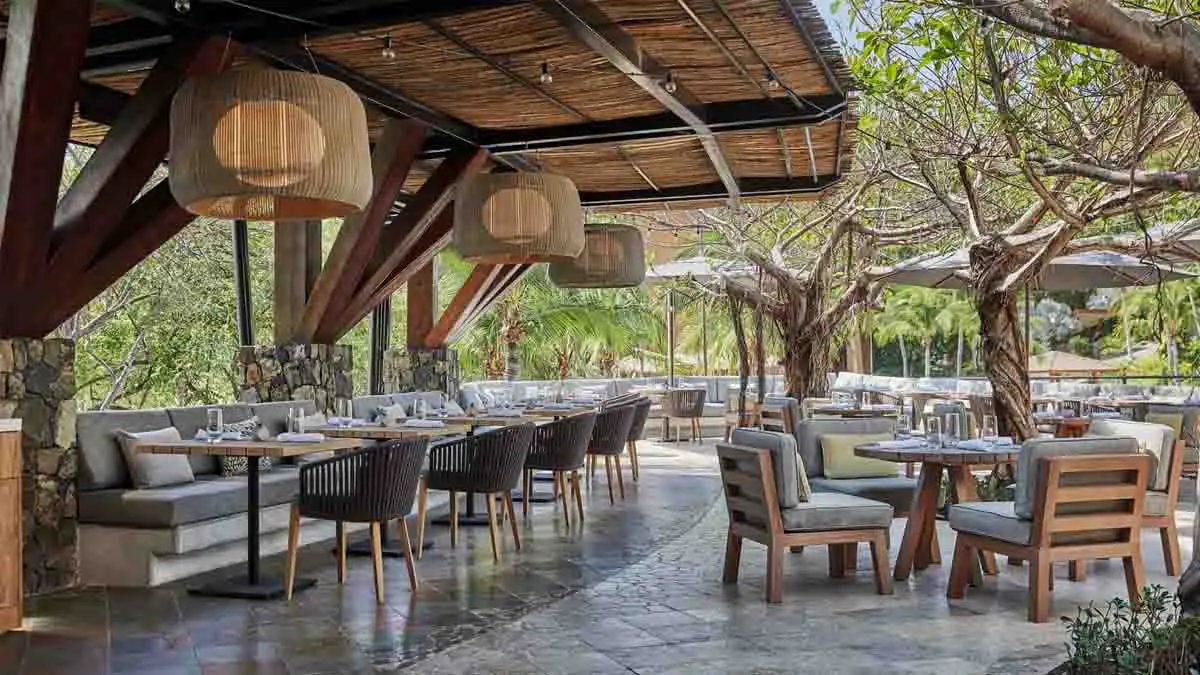
The new vehicle and commercial restrictions, that took effect from this past weekend, complicate the situation of economic recovery in the service sector. Commerce will not be able to open to their customers on weekends (only home delivery is enabled) and during the week they will be able to open until 7 pm in the cantons with an orange alert; in areas with a yellow alert, they must also operate until 7 pm from Monday to Sunday, in addition to the strong vehicle restriction.
Jorge Figueroa, president of the Costa Rican Chamber of Restaurants (Cacore), assured that the restrictions affect the economy of the restaurant sector; However, they share that the measures are focused on flattening the Coronavirus spread curve.
“That the Pandemic hit us hard it`s true and it continues compromising our economic survival, but we also understand that there is a public health issue and that people can aggravate their health,” said Figueroa.
“We support health guidelines and compliance with protocols. And in this I do want to be very categorical, restaurants in terms of protocol management have been exemplary”, he added.
Impacts on employment
The new changes in the hours in which commercial establishments can operate could cause, once again, modifications in working hours. In addition, Figueroa assured that businessmen should look for ways to further promote delivery or express options, but emphasized that this modality is not the solution for the complex situation in the sector. Many restaurants are not enrolled in any digital platform or don`t have motorized units to provide this service.
The Costa Rican Chamber of Restaurants (Cacore) updated the figures affecting the sector: there are already 8,500 closed businesses, mostly small and medium-sized companies, as well as some 121,000 unemployed people, derived from the crisis caused by the Coronavirus.
Before the Pandemic, the union consisted of around 19,000 restaurants and 228,000 workers, with an approximate contribution to the Gross Domestic Product (GDP) of 1.76%, Cacore said. However as the months go by, more restaurants and related businesses join the list of temporary and permanent closings.
The Speaker of the Chamber, Clemencia Palomo, explained that San José and Puntarenas are the provinces most affected by the closure of restaurants and Sodas. Palomo indicated that the survey carried out within the guild, yielded the following data: 50% of restaurants are still open, 70% have payrolls of less than 25 people, 15% of 26 to 50 collaborators. 55% of restaurants have had to lay off staff, 27% of restaurants currently opened, do not achieve positive numbers, so they do not rule out closing their doors in the coming months. 121,000 layoffs are estimated in the sector since the start of the crisis.
Managers of the restaurant sector were surprised after Health did not include them in the easing of restrictions, little by little, to revive the economy. Days ago, Palomo assured that they were certain to be allowed to open on weekends for customer service, or at least enable the option that customers could go to pick up the order. The new measures did not include businesses in the commerce or restaurant sectors, which must use home services on weekends in order to make sales.
Still, Palomo said, many of the small restaurants have not been able to access these platforms or motorized ones, which has further affected income. “The restaurant sector is dying. We feel that this is the slow death of the restaurant sector, but we are not going to stop trying to survive”, said the spokesperson at a press conference.
Francisco Soto, director of Cacore, assured that despite the sector complying with all hygiene and safety protocols, they are working on additional guidelines for the prevention of COVID-19 and business continuity, which they hope to present to the Ministry of Health in the following days.
“We have gone beyond national regulations and are working on guidelines following standards of international organizations, governments and restaurant chambers of countries that are reactivating business in this sector,” said the director.
“We need to enable the working hours of Restaurants and Sodas, from Monday to Sunday, in accordance with the provisions of vehicle restrictions and hours. The authorization of the establishments would include three types of sales: table service, respecting the maximum capacity of 50% occupancy, delivery service at the counter or to the vehicle, and home delivery service “, added Palomo
In the survey, 85% of restaurant entrepreneurs indicated that they have had to take moratoriums in order to survive. Just over 70% of the sector considers that the central government and the municipalities have not done enough to help small and medium-sized restaurants. This, because the payment of patents, the difficulty of accessing financing and the short term in which the moratoriums on public services were established is part of what drowns the sector in mid-crisis due to COVID-19.
Entrepreneurs called on large landlords and realtors to reach agreements with restaurant tenants, since high rents have remained largely unchanged. The Chamber urged the Legislative Assembly to approve the project to make working hours more flexible for this sector.

